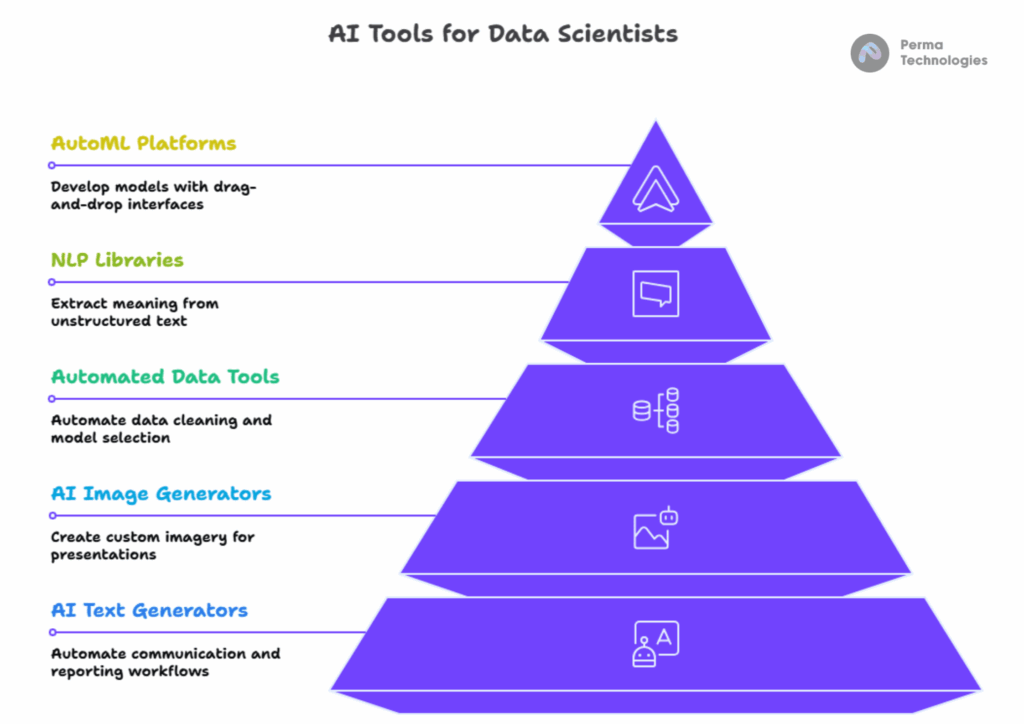In today’s fast paced digital landscape, AI tools are revolutionizing how professionals work especially in the realm of data science and analytics.Sure! For data scientists, the right AI-driven solutions can drastically reduce the time it takes to gather insights. They also make it faster to visualize data and build predictive models.
Whether you’re a seasoned professional or just starting your journey through a data scientist bootcamp, adopting the right tools can make all the difference in achieving success. At Perma Technologies, we believe in equipping our clients and readers with transformative AI solutions to stay competitive and innovative.
1. AI Text Generators
Modern AI text generators like ChatGPT, Jasper and Writesonic have made content creation more intelligent. These tools are not just useful for marketers but also for data scientists who need help writing technical documentation, summarizing reports, or generating dataset descriptions.
They leverage large language models (LLMs) to produce human like text, enabling data teams to automate parts of their communication and reporting workflows.
2. AI Image Generators
Need to visualize data driven concepts or create impactful presentations? AI image generators such as MidJourney, DALL·E, and Stable Diffusion allow data scientists to generate complex visual content using simple prompts. These tools are becoming indispensable for teams needing fast, custom imagery for stakeholder presentations or dashboards.
3. Automated Data Preparation & Analysis Tools
Platforms like DataRobot, H2O.ai and RapidMiner automate everything from data cleaning to model selection. These AI tools empower data science and analytics teams to spend less time on repetitive tasks and more on strategic insights.
Such tools are especially useful for those fresh out of a data scientist bootcamp, providing a practical foundation while minimizing technical barriers to entry.

4. Natural Language Processing (NLP) Libraries
Open source NLP tools like SpaCy, Hugging Face Transformers and NLTK help data scientists extract meaning from unstructured text. When paired with AI text generators, these libraries become powerful allies in developing chatbots, sentiment analysis models, and recommendation systems.
5. AutoML Platforms
Google AutoML, Amazon SageMaker Autopilot, and Azure Machine Learning provide drag and drop interfaces for end to end model development. These are ideal AI tools for companies scaling their data science and analytics capabilities without hiring large technical teams.
Conclusion
AI is no longer a futuristic concept,it is an integral part of the modern data scientist’s toolkit. From AI text generators that assist with communication to AI image generators that transform visuals, the tools available today are democratizing access to advanced analytics. Whether you’re undergoing a data scientist bootcamp or leading a corporate AI strategy, these tools can help you innovate faster and deliver smarter solutions.Explore how we at Perma Technologies can help you integrate these tools into your data workflows to unlock real business value.




